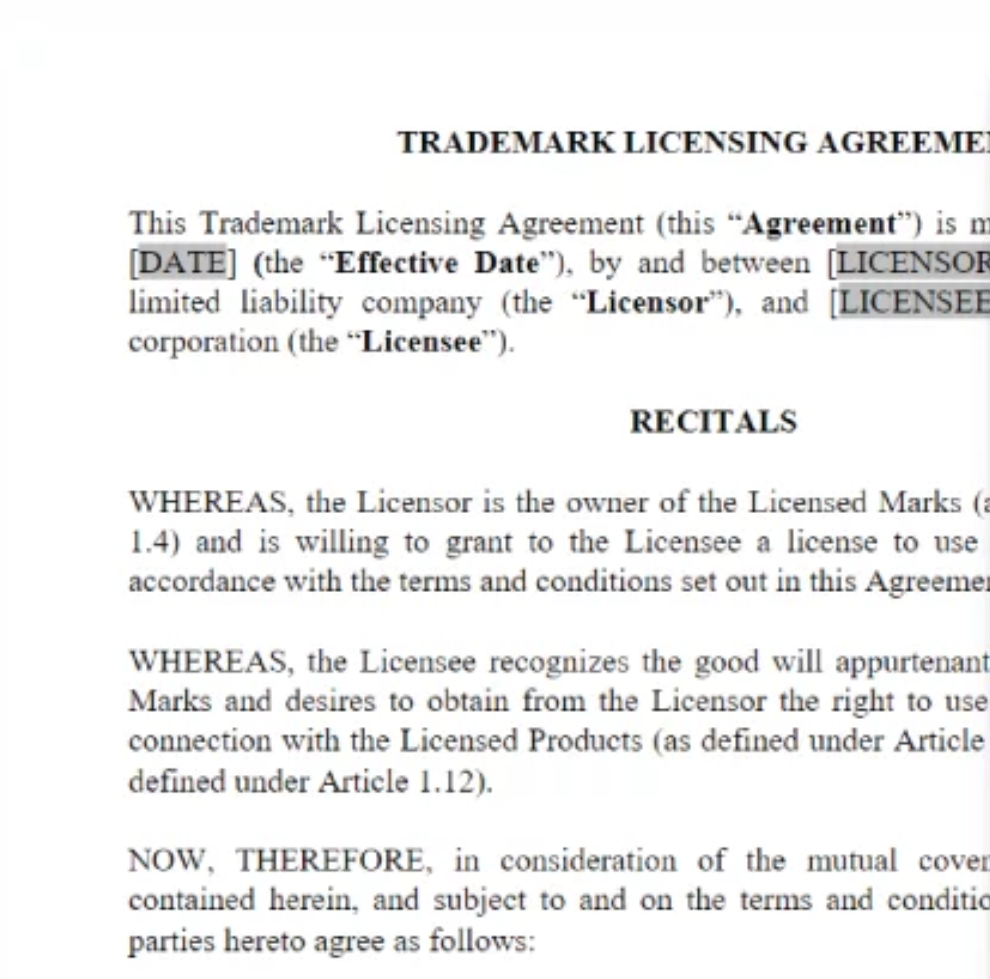
Recently I saw that a company is offering contract templates to its customers. (I don’t need to identify the company to make my point.)
The screenshot above is part of an image used in the company's description of this offering. It features a fragment of one of their templates, and it’s enough to show me that the template in question was built of mainstream contract language, in all its dysfunction. I see, among other things, a confusing dating convention (Effective Date), redundancy (by and between), witless archaisms (WHEREAS; NOW THEREFORE), particularly annoying redundancy (the traditional recital of consideration), and an unnecessary term of art (appurtenant). From that, I conclude that this template is unreliable.
Unrealiable? Really? How can I extrapolate from less than half a page!
The features I noticed show me that the drafter was a copy-and-paster: instead of aiming to be clear and concise, their instinct was to opt for what is traditional, either out of misguided faith or out of expediency, to give the people what the drafter assumed they want. Either way, the result is dysfunction.
The features that appear in that screenshot are mostly annoying rather than anything that might cause a fight, although they do add a stale legalistic flavor and give the reader more work to do. But when you let in the chaos of traditional contract language, bad things can happen. And they happen all the time. Fights over verb structures (for example, agrees to). Fights over lexical ambiguity (for example, indemnify and hold harmless). Fights over syntactic ambiguity. Fights over defined-term glitches. I could go on. And on.
So when I look through a keyhole and see small glitches of mainstream contract language in a template, it’s safe to say that the template has opened the door to the whole world of traditional dysfunction and the entire spectrum of possible consequences.
And if someone is unwilling or unable to eliminate dysfunction in how you say in a contract whatever you want to say, I'm not sure I can rely on what the contract says—in other words, the substance. But that's a whole other issue.
.jpg?width=352&name=sven-mieke-fteR0e2BzKo-unsplash%20(1).jpg)

